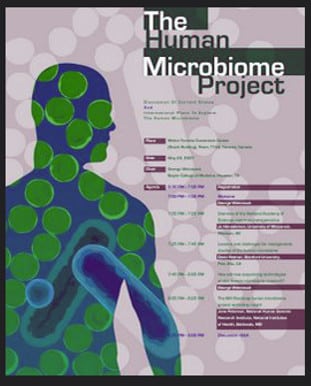 A fecal bacteria transplant, to make an obese human lean—what a bizarre notion! But what if it turns out to be valid? Should we all immediately rejoice and declare the war on obesity won? Absolutely not. Even when equipped with winning microbes, people are susceptible to all kinds of competing influences.
A fecal bacteria transplant, to make an obese human lean—what a bizarre notion! But what if it turns out to be valid? Should we all immediately rejoice and declare the war on obesity won? Absolutely not. Even when equipped with winning microbes, people are susceptible to all kinds of competing influences.
In the Gordon lab studies in which microbes harvested from humans were transferred into mice, the humans were chosen from a very specific subset—identical twins, one fat and one thin. They had identical genetic heritage, and presumably started out equipped with colonies of the same kinds of microorganisms. But the twins ended up mismatched. Something happened along the way to cause a variation in their microbiomes, among other things.
For instance, there is evidence that the wrong kind of diet, one low in fiber and high in saturated fats, can defeat even the best efforts of friendly microbes. The intestinal fauna work to facilitate the digestion of food. If all goes well, they produce, for example, chemicals that let the brain know the stomach is full and it’s time to stop eating.
Microbiomes and Mood
The inner population comprises thousands of different kinds of microorganisms, some of which produce neurotransmitters that affect the psychological and emotional state of their host. According to one theory, the connection can work the other way, and severe psychological trauma can trigger the demise of certain kinds of bacteria. If so, not only would they be missing, but a space would be created that might be filled by unhelpful microorganisms, like the kind that apparently promote the proliferation of fat.
A German word, kummerspeck, means “grief fat.” In response to bereavement, some people put on weight, and the assumption is that they eat more in search of emotional comfort. Could the opposite process be in effect? Can the psychological stress of extreme sorrow somehow affect the microbiome, causing an imbalance that promotes weight gain? In the near future, research in this field could unearth some astonishing surprises.
Helping Modalities Are Here To Stay
Even if the microbiome is the key, and even if every obese person could have a fecal transplant of lean microbiota, there would still be plenty of opportunity for things to go wrong. Proof of that lies in the bariatric surgery field, where self-sabotage is a very real hazard. A person can defeat the surgery by “eating through” it and stretching the stomach back out. Even with such an extreme physical intervention, they are not going to get better as long as the addictive behavior remains. Some post-surgical patients plead ignorance, and complain that nobody told them they would have to change their lifetime accumulation of bad habits. Others manage their food admirably, and cross-addict to alcohol, hard drugs, gambling, or some other substitute.
The point is, even people who go for the expensive and potentially hazardous (and potentially futile) option of surgery, still need to put in the work. They still need education and therapy and a support system like W8Loss2Go. Neither an operation nor a gutful of new bacteria can cause life to magically become perfect. Even if everyone were granted a wish for fecal transplants, the need for support programs would not go away. Everyone has a lifetime of bad habits to unlearn; temptation is everywhere; and nobody can get better as long as addictive habits are still in place. People still have everyday problems and stress to deal with, and sometimes big horrendous events. Without programs to offer healing and retraining, the odds are not good.
The Bugs Can’t Do It Alone
Even when ground is gained by implanting a better class of microbes, a person who wants to keep the title of “formerly obese” needs awareness of what foods to put into her or his body to optimize the advantage. That person will need to tweak, or perhaps completely re-formulate, what previously seemed like a reasonable diet. Those insidious “problem foods” still have to be identified and rejected. The person still needs a mentor, at least for a while, and a buddy, perhaps in a lasting relationship. The microbes can’t do it alone. Even if fecal transplants become as common as surgery, there is still no guarantee that obesity will be overcome.
Your responses and feedback are welcome!
Image by AJC ajcann.wordpress.com

 FAQs and Media Requests:
FAQs and Media Requests: 











